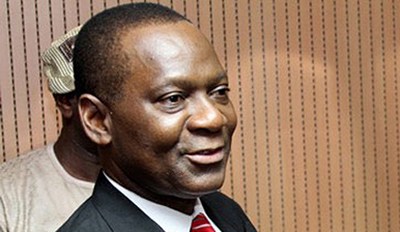 The Federal Government is ready to defend the recent execution of four convicts in Edo, which ended a seven-year moratorium on death penalty in the country, an official said.
The Federal Government is ready to defend the recent execution of four convicts in Edo, which ended a seven-year moratorium on death penalty in the country, an official said.
The Minister of Foreign Affairs, Olugbenga Ashiru gave the indication in Abuja on Friday at a Consultative Forum on the forthcoming review of human rights in Nigeria under the UN Universal Period Review (UPR).
Ashiru acknowledged that executions in Edo would likely come up when the country appears before the UN Human Rights Council in Geneva this October for a periodic review of its human rights.
It will be recalled that the June 24 execution in Edo had been criticised by the UK Government, UN and the EU High Representative, Catherine Ashton.
According to the top EU diplomat, the execution negates recent commitment repeatedly made by Nigerian officials, most recently in May, to maintain the de facto moratorium on executions.
Ashiru told reporters that the execution would not act as an impediment to “tremendous improvements” by government on human rights issues in the country.
He reminded countries accusing Nigeria of human rights violations to remember that the criminal code was inherited from the ‘colonial’ powers.
He noted that in Nigeria, State Governments are autonomous and for the execution in Edo, Gov. Adams Oshiomole acted within the confines of the law.
“I agree that there was an unwritten code that we should have a moratorium pending the time when our constitution is reviewed.
“But don’t forget that the constitution we follow is supreme but the criminal code that we use is still the same handed over to us by the colonial powers.
“So, until the statute books are reviewed, there is nothing anybody can do and I think the governor of Edo acted within his constitutional powers.
“He gave reasons why he signed the death warrants because the circumstances under which the crimes were committed were really heinous and in itself a crime against humanity.”
Earlier, the minister told the forum reviewing the draft national report before its submission to the UN Human Rights Council not to be ‘apologetic’ on the country’s stance on same sex marriage.
“We should not shy away to defend what is right, what is correct and what is in our constitution,” he said.
He also told the forum to strongly defend the records of Nigeria’s armed forces on human rights.
“They have been tested and trusted and they have distinguished themselves in numerous peacekeeping operations across the world,” he stressed. (NAN)




